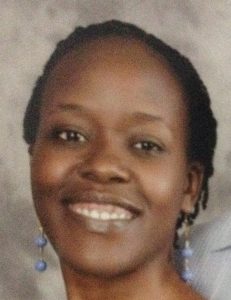February 19, 2021
Linda Kizazi Study team receives award to examine benefits of postnatal home visits for HIV-exposed mother-infant pairs in Kenya

Congratulations, Dr. Ednah Ojee (Tutorial Fellow and Pediatrician, University of Nairobi Pediatrics and Child Health) and the Linda Kizazi Study (LKS) research team for receiving a 2020 UW/Center for AIDS Research (CFAR) International Pilot Award to support a new project to help formulate a home-based postnatal intervention to improve neonatal health outcomes in Kenya. This project is a collaboration between investigators at the University of Washington, University of Nairobi, and Kenyatta National Hospital.
Despite the continued priority and expansion of maternal, newborn, and child health interventions, neonatal and infant morbidity and mortality remain high in Kenya. Cost-effective innovations that focus on the early neonatal period, such as postnatal home visits, could improve child survival, especially among HIV-exposed children who experience higher morbidity and mortality compared to their HIV-unexposed counterparts. While home visits have successfully reduced newborn deaths in high mortality settings, few studies have examined the benefits among women living with HIV and their infants, and data from Kenya are lacking.
Leveraging LKS’s cohort of mother and infant pairs in Nairobi, this pilot study will evaluate the effects, acceptability, and feasibility of postnatal home visits among this population. The study team will compare maternal-infant outcomes between women who signed up for weekly home visits To understand how home visits can benefit groups at the highest risk of mortality, the team will conduct focus group discussions and in-depth interviews with mothers, clinicians, and healthcare administrators for their perspectives and experiences. Lastly, the team will measure the costs of different home visit care models to assess the feasibility of scaling up this intervention on a regional or national level.
The results can help Dr. Ojee and the LKS team develop an optimal approach with the optimal timing to keep mother-infant pairs engaged in HIV and postnatal care. Following this project, they plan to design a randomized trial of a cost-effective home visit intervention to improve care for HIV-exposed neonates and infants during this critical period of life.